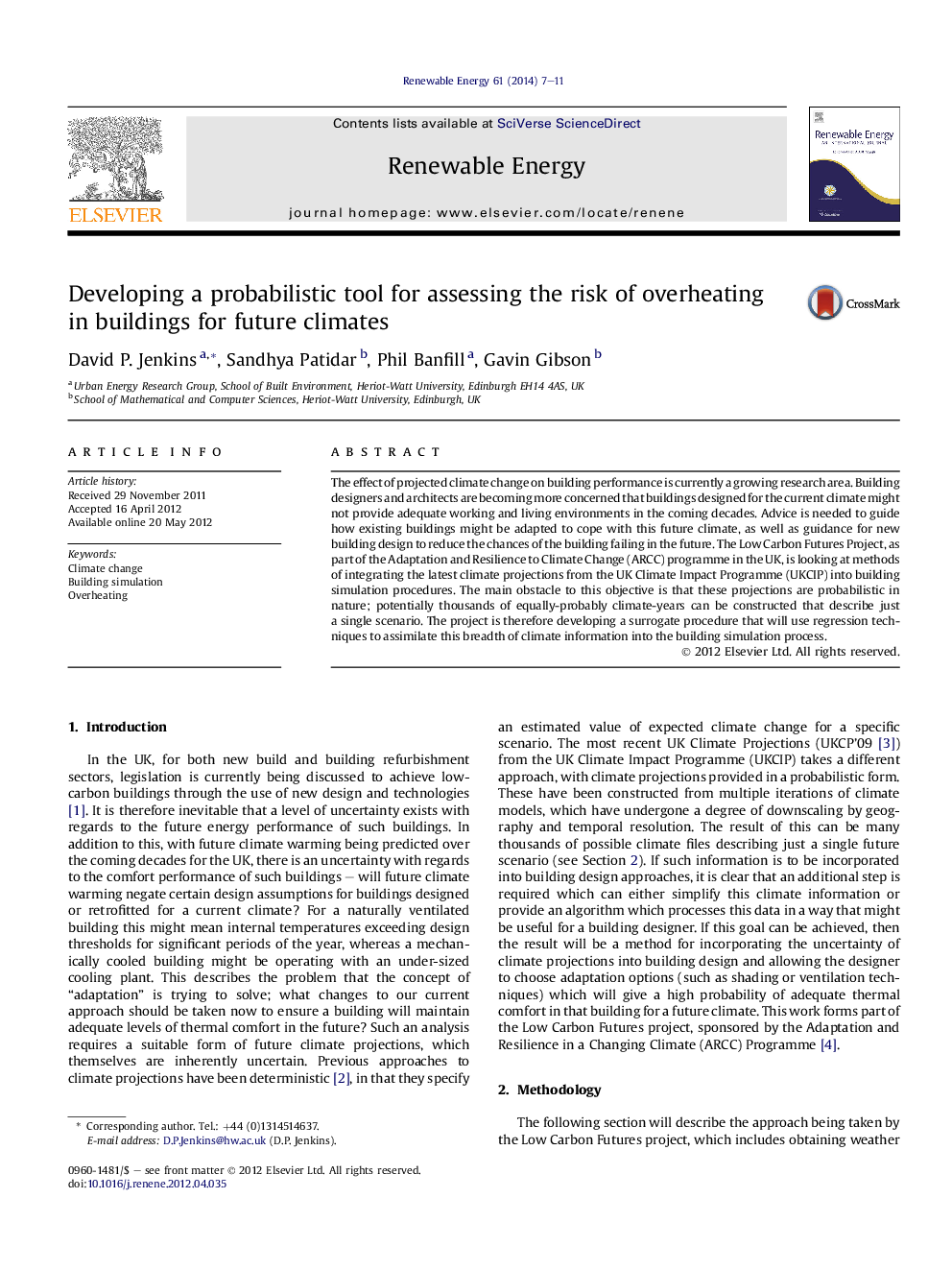| Article ID | Journal | Published Year | Pages | File Type |
|---|---|---|---|---|
| 300241 | Renewable Energy | 2014 | 5 Pages |
The effect of projected climate change on building performance is currently a growing research area. Building designers and architects are becoming more concerned that buildings designed for the current climate might not provide adequate working and living environments in the coming decades. Advice is needed to guide how existing buildings might be adapted to cope with this future climate, as well as guidance for new building design to reduce the chances of the building failing in the future. The Low Carbon Futures Project, as part of the Adaptation and Resilience to Climate Change (ARCC) programme in the UK, is looking at methods of integrating the latest climate projections from the UK Climate Impact Programme (UKCIP) into building simulation procedures. The main obstacle to this objective is that these projections are probabilistic in nature; potentially thousands of equally-probably climate-years can be constructed that describe just a single scenario. The project is therefore developing a surrogate procedure that will use regression techniques to assimilate this breadth of climate information into the building simulation process.
► The LCF methodology for using UKCP'09 with building simulation is presented. ► Building simulation is emulated through regression techniques. ► Novel overheating risk analyses are provided for case study buildings. ► The usefulness of probabilistic climate projections are discussed.
